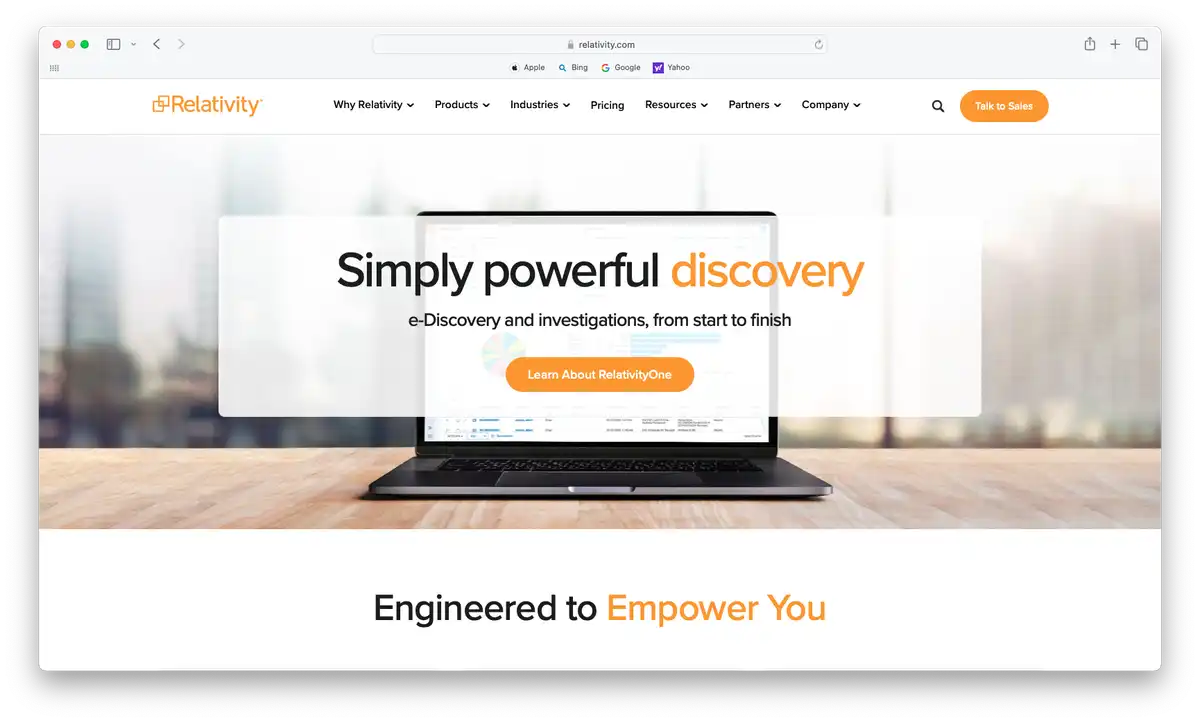5 Best E-Discovery Software in 2026
January 2026
·
4 min read

Finding that decisive evidence from countless chat messages, emails, and months' worth of body cam footage is frustrating. This is the reality of dealing with litigation data, where the stakes are high, and the volume of evidence is massive.
According to Clio’s 2017 Legal Trends Report, attorneys spend up to 6 hours a day on non-billable work, including administrative tasks like document collection and configuring technology. You can eliminate this and maximize your effort with the help of the e-discovery software. But with so many e-discovery software options available, how do you choose the right one?
In this article, I will talk about the five best e-discovery software, each highlighted for its specific advantages to guide your decision-making process:
1. Reduct.Video
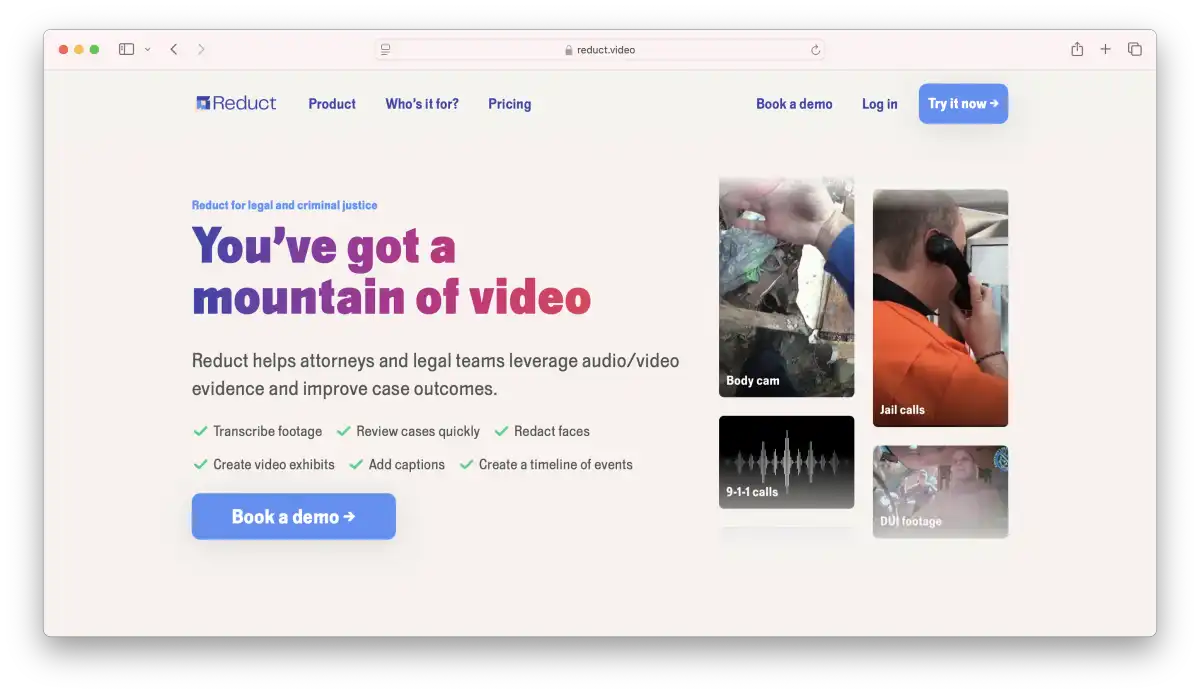
Reduct provides accurate transcription across 90+ languages, catering to researchers, and lawyers, with hefty volumes of audio or video content.
Reduct simplifies editing and evidence gathering with features like highlighting, tagging, and searching through transcripts that sync with the video. You can store hours of litigation recordings such as body cam footage or police interviews. There is no limit on the storage space, allowing you to store files of any size.
You can highlight important bits from your recording, and tag and categorize them. Clips that have identical tags are grouped to help you edit related clips together to build your video exhibits.
You can even redact your audiovisual evidence to protect PII and other sensitive information to make your evidence admissible in court.
Public Defenders and agencies that deal with FOIA requests and grapple with hours of footage to create video exhibits and evidence to be presented in court.
- Free trial (5 hours of free transcription)
- Paid plans:
- Personal ($12/month per editor paid annually)
- Professional ($40/month per editor paid annually)
- Flexible pricing that fits any Enterprise
2. Logikcull
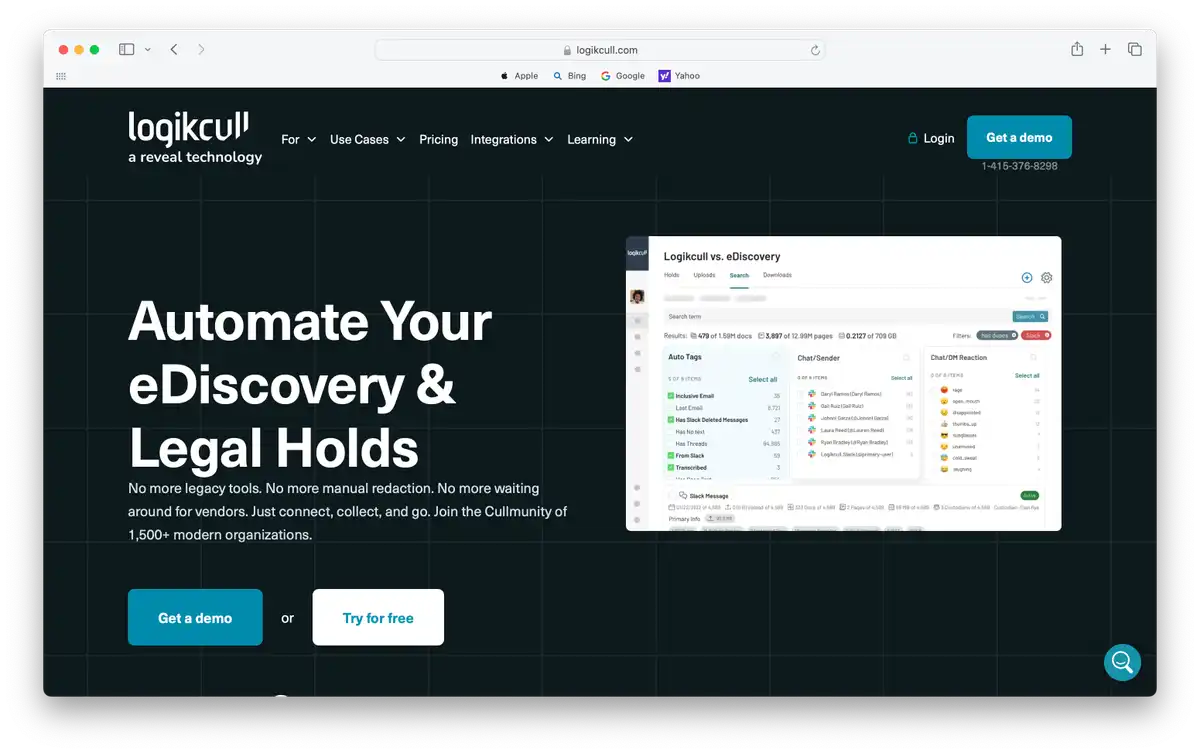
Logikcull by Reveal is a cloud-based eDiscovery solution that allows you to handle electronic documents in discovery and investigations.
It automates common discovery steps such as data ingestion, file indexing, OCRing, virus scanning, and more, preparing documents to be reviewed and produced. Once data is loaded into the platform, legal teams can begin reviewing the data, creating searches to find documents, sorting information by metadata fields such as creation date or document author, and tagging files as responsive, non-responsive, by subject or legal element, etc.
Logikcull also offers Logikcull Hold, which allows users to automate hold notices, reminders, and tracking for increased security and speed. Logikcull has direct integrations with data sources such as Slack, Microsoft 365, and Google Vault, making it easy to pull data right from the source. Logikcull is trusted by hundreds of legal teams to automate discovery and legal holds for disputes, subpoenas, and more.
Legal Professionals who need to search for evidence through emails and digital transaction records for corporate investigations and civil litigation.
-
Free Trial on request
-
Paid plans:
-
Pay-as-you-go-pro: $395/mo./project + One-time $25/GB processing fee
-
Enterprise Subscription: Pricing available upon request
-
3. Everlaw
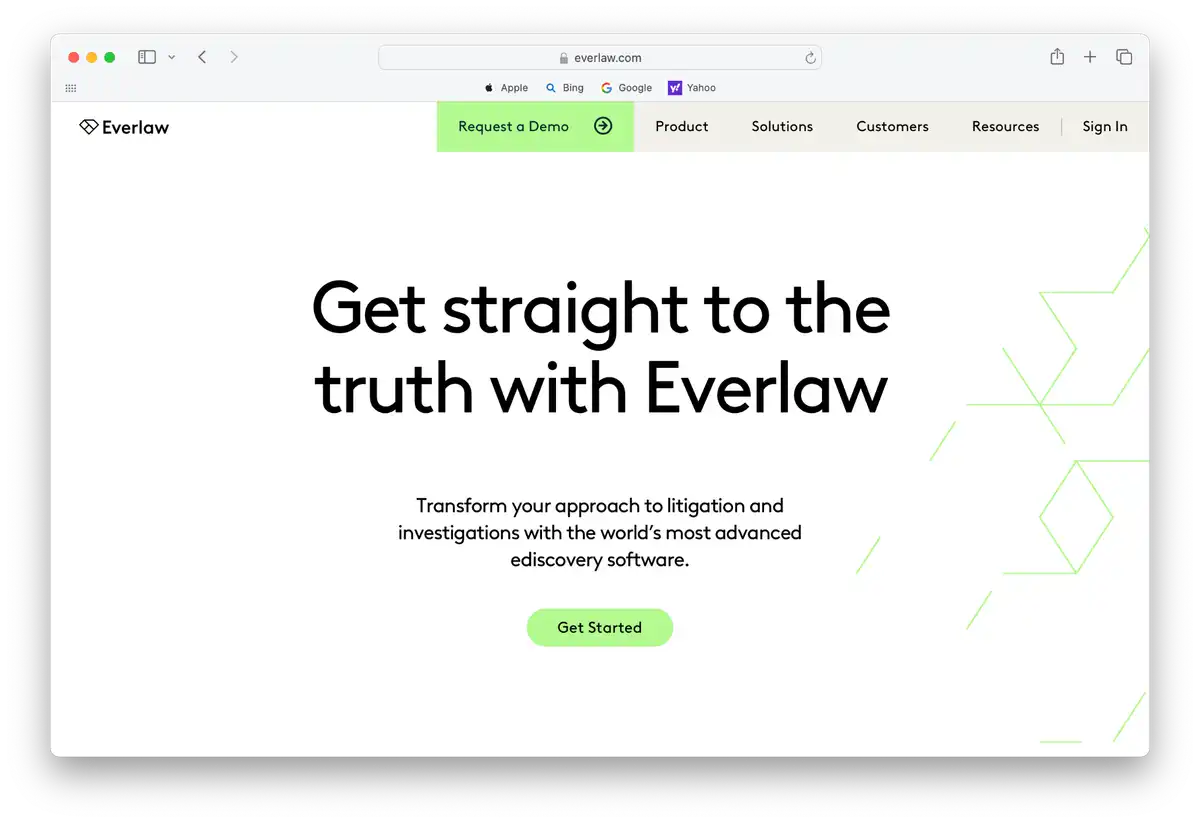
Everlaw excels in three key areas: customization, user-friendliness, and comprehensive features. The ease of being able to customize each database to be specific to each case helps you organize your evidence according to your need.
Additionally, Everlaw stands out for its wide array of features, including advanced search functionalities, collaborative drafting tools, and robust redaction options, all of which contribute to streamlining e-discovery processes and enhancing productivity.
However, a notable downside of Everlaw is its limitation in sharing exports with other users.
Attorneys that need to automate their high-profile cases to create trial exhibits and overall effectiveness in simplifying complex legal workflows.
-
Free trial
-
Paid plans:
-
Starts from $250/month
-
Pricing is based on the amount of data hosted.
-
4. Casepoint
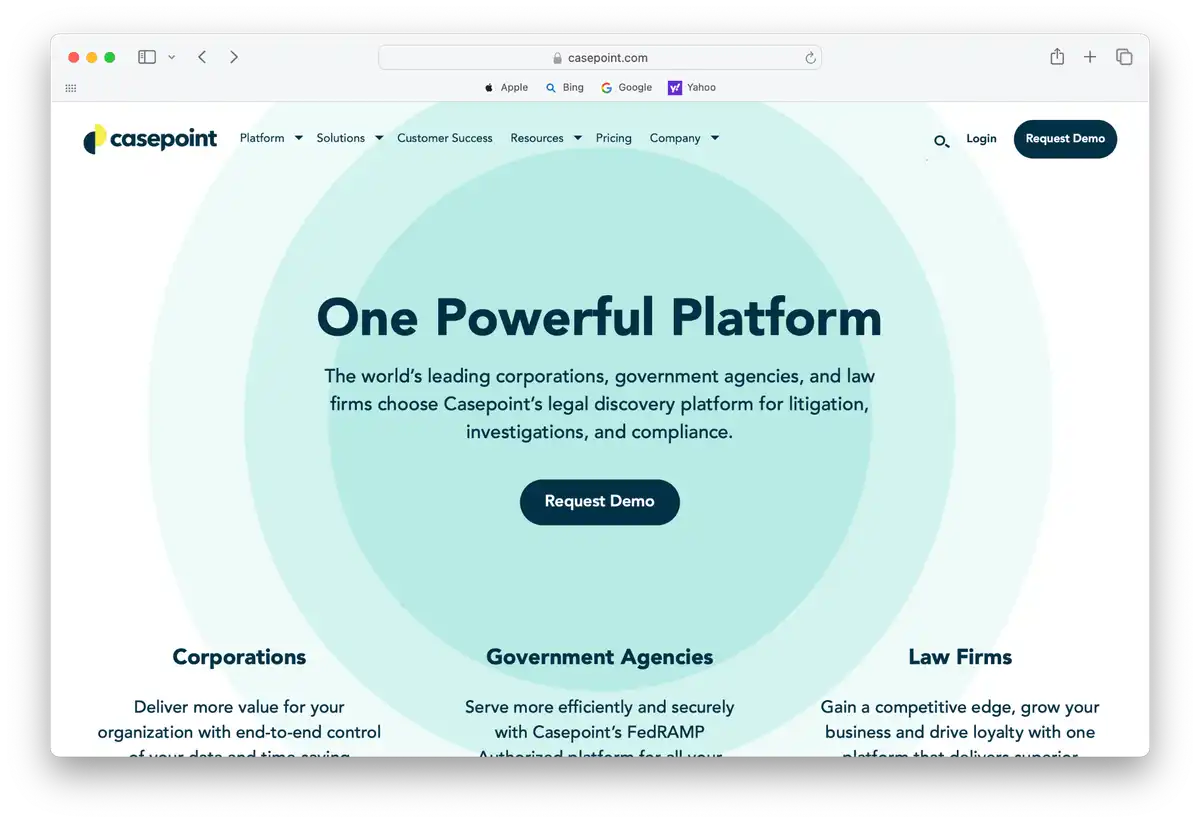
Casepoint leverages its AI-driven data analytics and predictive coding to find crucial data and build compelling cases. Its unified platform simplifies the discovery process, delivering more critical data in less time.
One of Casepoint's strengths lies in its high level of customization for export features, enabling quick bulk exports of various file types with customizable file naming conventions. Its well-developed production module and versatile data import tools streamline workflows. Advanced search and drilling functions, along with highly customizable views, enhance efficiency in document review and organization. They also work with a number of large federal and state agencies and are FedRAMP authorized.
It has a few drawbacks such as the absence of a native document redaction. While the customization feature is impressive, some aspects require collaboration with their team rather than being entirely self-manageable.
Enterprises who are looking for an end to end, customizable platform with no additional user-fees.
-
Free trial on request
-
Paid plans - Undisclosed
5. Relativity
RelativityOne offers unparalleled flexibility with its open platform, allowing users to extend functionality using custom-built or developer-made applications. Relativity is best for rapid discovery with open-platform flexibility.
It has a great range of functionality for document management. The granularity of the search function is particularly useful. All documents on the database can be searched through any combination of Relativity's search matrices. Searches can easily be saved, copied, edited, and saved again. As well, it is easy to organize these saved searches into categories, each referring to a specific individual or a specific aspect of the search. This allows users to easily pull exactly the documents that are specific to their needs.
The platform also offers robust analytics options and allows for integration with third-party applications like Veritone translate, enhancing its versatility.
However, Relativity has some drawbacks such as difficulties in granting access for specific tasks, difficulty in getting your annotations out of the software, and the software times out on sessions so if you get yourself distracted by an important task you may find your session timed out, losing your place in the document queue.
Legal officers and litigation managers that utilize templated processes for Early Case Assessment(ECA) and organize their cases in a simple folder structure.
-
Free trial on request
-
Paid plans - Undisclosed
To achieve your goal of producing a distilled, organized work product in the form of a synopsis/timeline/folders of audiovisual recordings and documents as evidence, any of these solutions can help you streamline your process.
Prioritize features that align with your requirements to choose the best e-discovery software suited for you.
